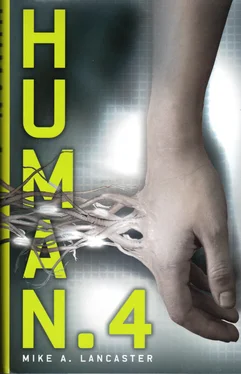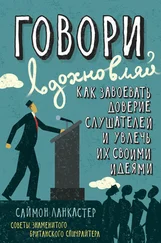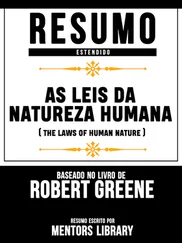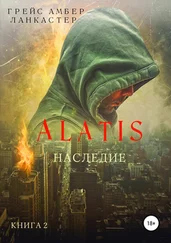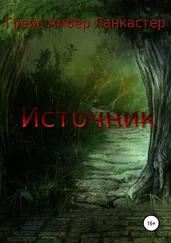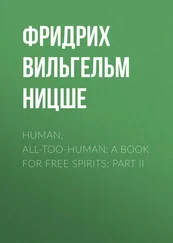He ignored our disbelieving looks.
"I got her to relax. And I guided her into a hypnotic state. I didn’t even need to say “sleep” like they do on the telly. As I relaxed her, her eyes closed and her body went . . . sort of floppy. I hadn’t even thought about what I’d get her to do when she was hypnotized, to be honest. So I told her that she was late for school—it was well past eight in the evening—and suddenly she flew into a panic, running around, throwing stuff into her school bag and complaining about the alarm clock not waking her up."
He shook his head.
"It was priceless," he said.
He waited for one of us to say something.
And waited.
There was me, Simon McCormack, Lilly Dartington and Danny. We all lived down the same road in the small village of Millgrove, and we’re all roughly the same age, so we tend to hang out together.
We were in "the shed", the bus-shelter that squats by the side of the village green, and it was one of those long, hazy summer days that seem to stretch out into something closer to a week. To local kids the shed was a place to meet up, hang out, practice some inept graffiti, and generally waste some time.
Across the green from the shed is the Methodist church, and next to that the combined infants and junior school that we all went to before moving to secondary school in the next village over, Crowley.
There’s not a whole lot to do in Millgrove.
We couldn’t get high-speed broadband yet and we were in the middle of a mobile-phone dead spot that meant you couldn’t get a signal within the village itself. We were one of the last generations in the country that didn’t rely on mobile phones, although there were rumors that a new mast was going to help us catch up with the rest of the twenty-first century one day soon.
There’s a tiny playing field where the older kids try out smoking and train for future binge drinking, so we tended to avoid that. Then there are the three shops—a Happy Shopper, a family butcher’s shop and a newsagent.
NOTE—"Happy Shopper"
A retail outlet whose name demonstrates the period’s love of oxymorons—phrases that contain contradictory terms. Other examples are: "Civil War", "Reality TV", "Constant Change", "Military Intelligence" and "Friendly Fire".
The shed is pretty much in the center of the village, near enough to the shops in case we needed supplies, and it has a roof in case of English summer rain.
Simon and I have been friends for years. In all honesty I can’t even remember how our friendship came about. Sure, we have a lot of the same interests and attitudes about things, but all that came later . . . I mean, it was revealed over time, so there must just be some . . . I don’t know… instinct for friendship that’s separate, somehow, from all of that.
Without the friendship we’d never have discovered the reason we were friends.
You can drive yourself mad going round in paradoxical circles like that.
Simon and Lilly had been going out with each other for a while now, and seeing as Simon is my best friend I seem to get pulled along with them a lot these days. It’s weird getting used to sharing a friend . . . and . . . well, Lilly and I weren’t getting on if the truth be told.
Danny lives next door to me and kind of just clings on to my coat-tails. Again, I don’t know exactly why. Simon and I make him the butt of a lot of jokes but he just shrugs it all off.
That day we were just trying to fill up the day while using as little energy as we could.
And then, of course, Danny told us that he had hypnotized his sister.
Simon stared at him, with a disbelieving look that summed up how the rest of us felt about Danny’s revelation.
"You hypnotized Annette?" he said, and the spare disbelief he hadn’t managed to put into his stare was crammed into the scathing way he said those three words. There was even a snort at the end of it.
Danny seemed to miss the incredulity and nodded.
"I’ve been reading a lot of books on the subject," Danny said, "and I’ve been watching lots of Paul McKenna and Derren Brown on DVD. With the talent show coming up I thought I might ditch the magic act this year and do a bit of stage hypnotism. You know, make people bark like dogs, or eat an onion as if it’s an apple."
Simon groaned.
Of all of the area’s customs and traditions, the Millgrove talent show is by far the oddest. Every summer since Queen Victoria was sitting on the British throne—with a two-year gap during the Second World War—the people of Millgrove have gathered on the green to compete in the competition. Even when local lads were dying in the trenches in the First World War, the tradition continued.
Local folklore says the talent show began because of a dispute between two farmers, who’d fallen out over a woman and needed some way to settle the matter. Rather than firing pistols at each other, they each wrote a song for the girl and performed it on the green in front of the entire village, who were the judges of the competition. The village might have forgotten the men’s names, but a version of their way of settling the argument was resurrected over a hundred years ago and still continued.
The talent show.
Weeks, even months in some extreme cases, were spent preparing acts (and I’m using that term loosely, most of them were lame Karaoke offerings to amateur-sounding backing tracks) for the grand prize—a battered old cup and some WHSmith gift tokens. As long as it was a slow news week there was a chance of a feature about the show in the Cambridge Evening News, with the winners grinning at the camera, holding their prizes.
Who was it who said something about everyone in the world having their fifteen minutes of fame?
In Millgrove it was more like fifteen seconds.
To me the talent show has always been a bit of a cringe, really. When I was eight years old my dad told that me that, as I was always cracking jokes and making people laugh, I should have a go at being a stand-up comedian at the show.
NOTE—"cracking jokes"
Humour was, according to Andrea Quirtell, an important coping mechanism for the horrors of the age. Some people actually counted "comedian" (or "joke teller") as their trade.
Quirtell identifies a number of different types of joke. There are: "puns" (which confuse the meanings of words for humorous intent), jokes that work only when written, jokes that appear in the form of a question, jokes that rely on bizarre or ambiguous language.
Immanuel Kant believed that people laughed at constructions like these because "(L)aughter is an effect that arises if a tense expectation is transformed into nothing". Quirtell disagrees. "Laughter is an effect that arises if a race refuses to grow up," she writes.
All in all they were the most embarrassing minutes of my life so far, even beating the moments Mum spent getting out the baby photographs the first time I brought a girlfriend (Katy Wallace, it lasted three weeks) home to meet the folks.
I discovered that there is a huge difference between knowing a few jokes and being a stand-up comic. I don’t think I got a single gag right. I fluffed a punch line early on and then made a mistake in the set-up of the next joke that made its punch line irrelevant. Sweating on the makeshift stage, with hundreds of faces staring at me, I dried up and just looked out at them in the grip of a huge panic attack.
I haven’t entered the talent show since.
I rarely drag myself along for it, if I’m honest. I always seem to find something else to do. Like pairing socks, or cataloging my comics.
You know, important stuff.
"You will come and watch?" Danny asked, and there was a note of something close to desperation in his voice. "You will, won’t you?"
Читать дальше
